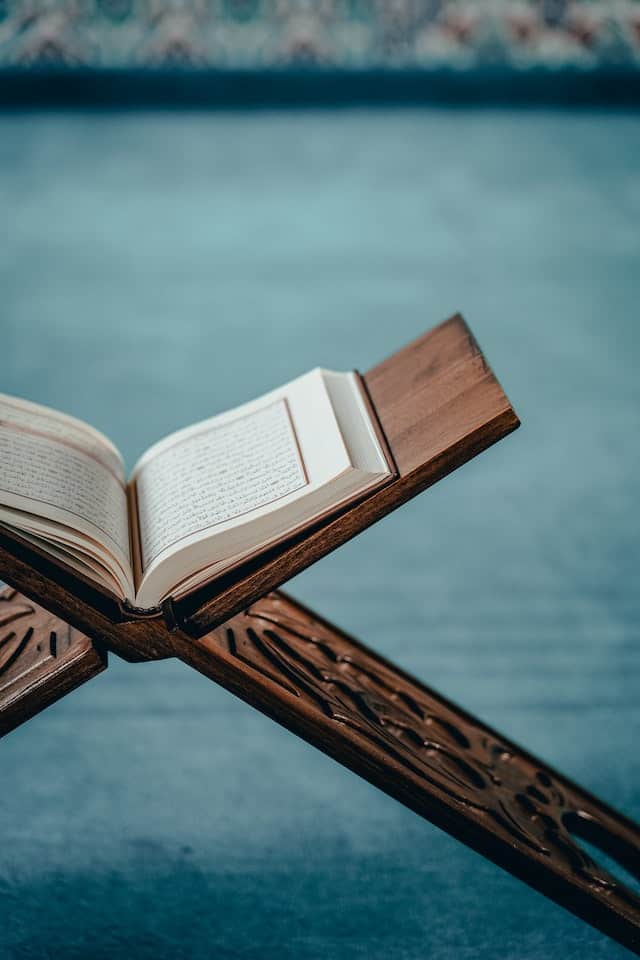Who are the Revivers of the Religion for each generation?
Abu Hurayrah (may Allah be pleased with him) narrated that the Prophet ﷺ said:
إِنَّ اللَّهَ يَبْعَثُ لِهَذِهِ الأُمَّةِ عَلَى رَأْسِ كُلِّ مِائَةِ سَنَةٍ مَنْ يُجَدِّدُ لَهَا دِينَهَا ”
Allah will raise for this community at the end of every hundred years the one who will renovate its religion for it.
(Abu Dawud)
We do not have their names, but the following are considered by some to be the Revivers of the Religion:
First Century (after the prophetic period) (August 3, 718)
Umar ibn Abd al-Aziz (682–720)
Second Century (August 10, 815)
Muhammad ibn Idris ash-Shafi`i (767–820)
Ahmad ibn Hanbal (780-855)
Third Century (August 17, 912)
Muhammad al-Bukhari (810–870)
Abu al-Hasan al-Ash’ari (874–936)
Fourth Century (August 24, 1009)
Abu Bakr Al-Baqillani (950–1013)
Hakim al-Nishaburi (933–1012)
Fifth Century (September 1, 1106)
Ibn Hazm (994–1064)
Abu Hamid al-Ghazali (1058–1111)
Sixth Century (September 9, 1203)
Salauddin Ayyubi (1137–1193)
Fakhr al-Din al-Razi (1149–1210)
Muhammad bin Bakhtiyar Khalji (1206)
Seventh Century (September 5, 1300)
Ibn Taymiyyah (1263–1328)
Eighth Century (September 23, 1397)
Ibn Qayyim al-Jawziyya (1292–1350)
Tamerlane (Timur) (1336–1405)
Ibn Hajar al-Asqalani (1372–1448)
Ninth Century (October 1, 1494)
Jalaludin Al-Suyuti (1445–1505)
Shah Rukh (1377-1447)
Mehmet II (1432–1481)
Tenth Century (October 19, 1591)
Selim I (1470–1520)
Suleiman the Magnificent (1494-1566)
Ahmad Sirhindi (1564–1624)
Abdullah ibn Alawi al-Haddad (1634–1720)
Eleventh Century (October 26, 1688)
Mulla Sadra Shirazi (1571–1640)
Khayr al-Din al-Ramli (1585–1671)
Mahiuddin Aurangzeb Alamgir (1618–1707)
Twelfth Century (November 4, 1785)
Shah Waliullah Dehlawi (1703–1762)
Muhammad ibn Abd al-Wahhab (1703–1792)
Murtaḍá al-Zabidi (1732–1790)
Shah Abdul Aziz Delhwi (1745–1823)
Usman Dan Fodio (1754–1817)
Tipu Sultan (1750–1799)
Syed Ahmad Barelvi (1786–1831)
Thirteenth Century (November 14, 1882)
Muhammad Abduh (1849–1905)
Said Nursî (1878–1960)
Syed Ahmad Khan (1817–1898)
Mahmud Hasan Deobandi (1851–1920)
Fourteenth Century – Contemporary Muslim thinkers of civilisational renewal around the world
1. The Arab–Maghrebi School
Focus: Civilizational reform, Maqasid, and Sunan-based revival.
- Malik Bennabi (1905–1973, Algeria) – Founder of The Philosophy of Civilization; introduced concepts like “colonizability” and “the elements of civilization (man–soil–time).”
- Abd al-Majid al-Najjar (Tunisia) – Leading scholar on Divine Laws (Sunan) and civilizational jurisprudence; linked Maqasid to social reform.
- Taha Abd al-Rahman (Morocco) – Philosopher of ethics and Islamic modernity; proposed a spiritual rationality as a foundation for renewal.
- Ahmad al-Raysuni (Morocco) – President of the International Union of Muslim Scholars; pioneer in Maqasid al-Shariah as a dynamic framework for contemporary reform.
- Imad al-Din Khalil (Iraq) – Historian and civilizational thinker; developed the civilizational interpretation of Islamic history.
- Jassim Sultan (Qatar) – Author of The Laws of Revival; redefined Sunan as the human sciences of change and development.
- Abd al-Karim Bakkar (Syria) – Educational reformer and thought leader in human development and intellectual awakening.
- Yusuf al-Qaradawi (1926–2022, Egypt / Qatar) – Founder of the Wasatiyyah (moderation) movement; advanced practical jurisprudence for modern societies.
- Muhammad al-Ghazali (1917–1996, Egypt) – Promoted rational, ethical religiosity and the integration of faith with life and society.
- Tariq al-Suwaidan (Kuwait) – Thinker and trainer in strategic leadership and civilizational planning for the Ummah.
2. The South & Southeast Asian School
Focus: Integration of religion, modernity, and institution-building.
- Muhammad Iqbal (1877–1938, India / Pakistan) – Philosopher-poet of Islamic revival; developed the concept of Khudi (selfhood) and spiritual freedom.
- Abul Ala al-Mawdudi (1903–1979, India / Pakistan) – Founder of Jamaat-e-Islami; formulated the idea of Islam as a comprehensive system of life.
- Ismail Raji al-Faruqi (1921–1986, Palestine / USA) – Founder of the Islamization of Knowledge movement and civilizational worldview of Islam.
- Sayyed Hossein Nasr (Iran / USA) – Philosopher of sacred knowledge and spiritual ecology; reconciles tradition and modernity.
- Syed Muhammad Naquib al-Attas (Malaysia) – Founder of Islamization of Knowledge and adab-based education; built the ISTAC model of Islamic scholarship.
- Anwar Ibrahim (Malaysia) – Islamic reformer and statesman; advocates civilizational justice and ethical governance.
- Muhammad Hamid Abu Sulayman (1936–2021, Sudan / Saudi / Malaysia) – Co-founder of IIIT; developed civilizational analysis as a research method.
- Ziauddin Sardar (Pakistan / UK) – Futurist and cultural critic; wrote extensively on Islamic modernity and ethics of science.
- Mohd Roslan Mohd Nor & Mohammad Rashidi Shamsudin (Malaysia) – Scholars of Islamic governance and sustainable development.
- Nuruddin Muhammad Thob (Indonesia) – Leading Southeast Asian scholar on Islamic education and moral development.
3. The African School
Focus: Islam, identity, and development in the African context.
- Uthman dan Fodio (1754–1817, Nigeria) – Early reformer who led a civilizational revival through education and justice in West Africa.
- Abdallah bin Bayyah (Mauritania) – Scholar of Maqasid and global ethics; promotes peace and civilizational dialogue.
- Ibrahim Niasse (1900–1975, Senegal) – Sufi leader emphasising balance between spirituality and social reform.
4. The Western Muslim School
Focus: Islamic presence, ethics, and intellectual reform in minority contexts.
- Tariq Ramadan (Switzerland) – Promotes European Islam and ethical renewal within modern plural societies.
- Ismail al-Faruqi (Palestine / USA) – (Also part of IIIT school) major impact on Islamic thought in the West.
- Umar Faruq Abd-Allah (USA) – Theologian of ethical beauty and Maqasid in Western context.
- Zaid Shakir (USA) – Educator and community leader focusing on spiritual revival and civic engagement.
- Ingrid Mattson (Canada) – Pioneer in Muslim civic leadership and women’s scholarship.
5. Cross-Regional Schools of Thought
- The Sunan & Maqasid School – Led by al-Najjar, Jassim Sultan, and al-Raysuni. Integrates divine laws (sunan) and higher objectives (maqasid) for comprehensive reform.
- The Islamization of Knowledge School – Led by al-Attas, al-Faruqi, and Abu Sulayman. Establishes a framework for integrating revelation and reason in modern sciences.
- The Ethical–Philosophical School – Led by Taha Abd al-Rahman, Nasr, and Iqbal. Centres on spirituality, ethics, and human dignity as the foundation of civilization.
- The Institutional Reform School – Led by Anwar Ibrahim, al-Suwaidan, and Bakkar. Translates ideas of renewal into leadership, education, and organisational practice.

